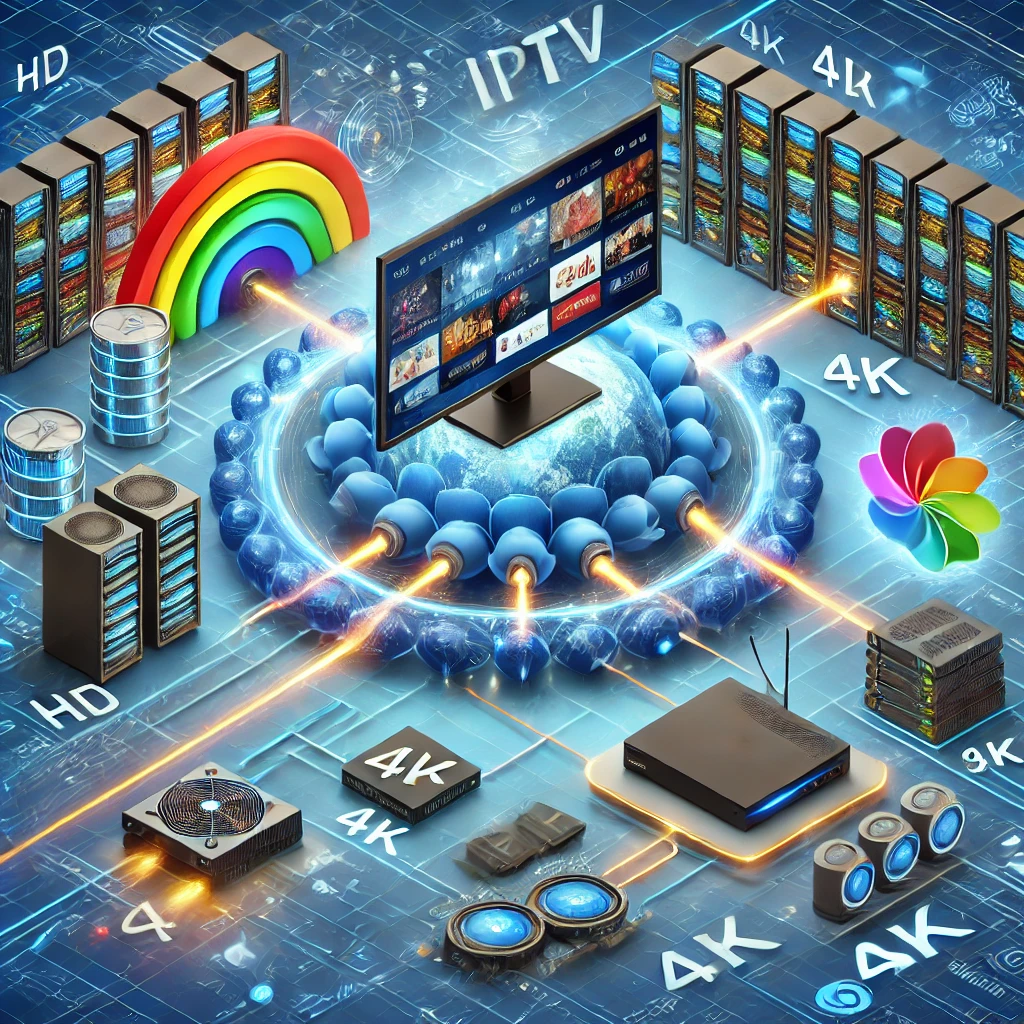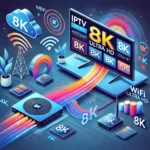
How IPTV Works: Technology Behind Seamless Streaming Explained
In today’s fast-paced digital world, entertainment has evolved far beyond traditional cable TV. Internet Protocol Television (IPTV) is leading the charge, offering users a more flexible, interactive, and personalized viewing experience. But how exactly does IPTV work behind the scenes to provide you with seamless streaming of your favorite shows, movies, and live events?
In this blog, we’ll break down the core technology behind IPTV, exploring the role of servers, content delivery networks, and the internet speeds required for optimal performance.
What is IPTV?
IPTV stands for Internet Protocol Television, a method of delivering television content over the internet rather than through traditional satellite or cable formats. Unlike cable TV, IPTV streams media content using IP (Internet Protocol), allowing viewers to watch live TV, on-demand content, and other media using their internet connection.
Learn more about the differences between IPTV and other streaming services in our IPTV vs. Other Streaming Services: Which Offers Better Value?.
How IPTV Works
To understand how IPTV functions, let’s explore the core components that make this technology work smoothly.
1. IPTV Servers
IPTV services rely heavily on powerful servers. These servers store and deliver video content to users upon request. The process begins when the content is encoded and stored on the server. When a user selects a show or channel, the server retrieves the data and sends it as a stream to the user’s device.
The servers ensure content is accessible and ready to stream at all times. That’s why choosing a provider with reliable servers is crucial for a seamless viewing experience.
Discover the best IPTV devices to enhance your streaming in our blog Best Devices for IPTV Streaming in 2024.
2. Content Delivery Networks (CDNs)
A Content Delivery Network (CDN) is a system of distributed servers that deliver web content to users based on their geographic location. CDNs play a vital role in improving IPTV performance by caching content closer to the end-user.
For instance, if you’re streaming a movie in the UAE, the CDN ensures the content is streamed from the nearest server, reducing latency and buffering times. This is crucial for maintaining a seamless and high-quality streaming experience.
3. Internet Speed and Bandwidth
For IPTV to work smoothly, a stable and fast internet connection is essential. The quality of your stream, especially for high-definition (HD), 4K, or 8K content, directly depends on your available bandwidth.
Here’s a general guideline for internet speeds required for different IPTV streaming qualities:
- SD (Standard Definition): 2-3 Mbps
- HD (High Definition): 5-8 Mbps
- 4K Ultra HD: 20-25 Mbps
- 8K Streaming: 50+ Mbps
Slow internet speeds or poor network infrastructure can cause buffering, delays, and interruptions in your IPTV experience. To avoid such issues, you need to optimize your home network.
Check out our guide on How to Optimize Your Home Network for the Best IPTV Streaming Experience.
IPTV Protocols and Formats
IPTV uses a variety of protocols to ensure the data is transmitted efficiently over the internet. Some of the most common protocols include:
- HLS (HTTP Live Streaming): Commonly used by Apple devices and widely supported across platforms.
- RTMP (Real-Time Messaging Protocol): Often used for live streaming services.
- MPEG-TS (MPEG Transport Stream): A standard format for transmitting digital video and audio over IP networks.
These protocols are designed to handle different types of content, whether it’s live streaming or on-demand video, ensuring that users get a smooth, uninterrupted viewing experience.
Benefits of IPTV Technology
IPTV offers a range of benefits that make it superior to traditional cable or satellite TV, including:
- Interactive Features: Pause, rewind, and fast-forward content, or access additional on-demand content.
- Multi-Device Support: Watch IPTV on your TV, smartphone, tablet, or computer.
- Scalability: IPTV can support an unlimited number of viewers, making it ideal for both small households and large-scale broadcasting.
- Personalized Viewing: Tailor your viewing experience with personalized content recommendations.
Conclusion
IPTV is the future of television, providing viewers with more flexibility and better control over their entertainment experience. Behind the scenes, it relies on powerful servers, CDNs, and robust internet connections to ensure smooth, high-quality streaming.
By understanding how IPTV works, you can make informed decisions about your internet speed, streaming device, and IPTV service provider to enhance your viewing experience.
Explore our range of IPTV services today at tziptv.com and experience the best in seamless streaming.

